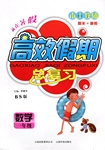题目内容
All the villagers ____________ the people who fought against the big flood, both young and old, men and women ___________.
A.joined; included B.joined in; containing
C.joined in; including D.joined; including
A

 暑假作业海燕出版社系列答案
暑假作业海燕出版社系列答案 本土教辅赢在暑假高效假期总复习云南科技出版社系列答案
本土教辅赢在暑假高效假期总复习云南科技出版社系列答案 暑假作业北京艺术与科学电子出版社系列答案
暑假作业北京艺术与科学电子出版社系列答案VI.用所给词组的正确英语形式填空(其中有两个是多余的): (共10小题,每题1分,满分10分)
|
及时,总有一天 |
阻止,制止 |
依靠,信赖 |
允许某人干某事 |
|
出发,动身,使爆炸 |
被放过,不受惩罚 |
暗中监视,侦查 |
解释,说明; |
|
盛装,打扮,装饰 |
纪念,追念 |
使……想起 |
守信用,履行诺言 |
80.---Did you catch your plane?
---Yes, we got there just __________________.
81.---Will you go fishing this afternoon?
---Well, it all __________________ the weather.
82.A gang of boys were often seen __________________ fireworks in the street.
83.We should find some ways to _______________ the harmful gas _______________ spreading.
84.Her genuine love for you may __________________ what she has sacrificed (牺牲)to make you succeeD.
85.The spy caught __________________ the military base was sentenced to 20 years in prison and was limited with no relative visiting.
86.Your hair and eyes __________________ me __________________ your mother.
87.We can believe in him for he is always __________________.
88.Don’t try to cheat in your examination---you’ll never __________________ it.
89.The party is not very formal, so there’s no need to __________________---come as you are.
The Elysee Palace in France enjoys equal popularity in the world with the Buckingham Palace in the United Kingdom, the Kremlin in Russia as well as the White House in the U. S. It is the residence of the president of the French Republic and the symbol of the supreme authority in France.
The Elysee palace, with an area of 11,000 square metres, is at the eastern end of the Champs Elysee in the city of Paris proper and backed by a large and peaceful garden of more than twenty thousand square metres. Its main building, quite handsome and graceful, is a two-story classical stone architecture of European style, and beside it are two side buildings facing each other and with an extensive rectangular courtyard in the middle. There are altogether 369 halls and rooms of different sizes.
The Elysee Palace, built in 1718, has a ling history of close to300 years to date. This house was at first a private residence of a count named d’Evreau, so it was called Hotel d’Evreau. It had later gone through many changes and its owners had been changed for many times, but all the residents in it were distinguished persons and high officials. The house was renamed Bonaparte Mansion when it was owned by Louis X V and Louis X VI successively when they acted as emperors. Napoleon I signed his act of abdication here when he had suffered defeat in the Battle of Waterloo in 1815. Nopoleon III moved in the Mansion in 1848 when he was elected president, and the house became a Royal Palace when he declared himself as emperor. The Third French Republic issued a decree in 1873, appointing officially the Elysee Palace as the residence president of the French Republic. Over the hundred years since then, almost all the president of the French Republic worked and lived there. Starting from 1989, the Elysee Palace is open to the public every year in September on the French Castles Day.
1.The number of the buildings of the Elysee Palace is ______.
|
A.3 |
B.4 |
C.5 |
D.6 |
2. Why does the writer mention the Buckingham Palace?
|
A.To tell us it’s very famous in the world |
|
B.To tell us the Elysee Palace is as large as it. |
|
C.To show that the Elysee Palace is also a symbolic building. |
|
D.To show that it is also the living place of the president. |
3.What’s the purpose of the passage?
|
A.To tell us the long history of the Elyseee Palace. |
|
B.To make an introduction of the Elysee Palace. |
|
C.To show the political importance of the Elysee Palace. |
|
D.To explain how the Elysee Palace became the residence of presidents. |
4. Which of the following is NOT mentioned in the passage?
|
A.The time when the Elyusee Palace is open to the public. |
|
B.The reason why Napoleon I signed his act of abdication. |
|
C.The time when the Elysee Palace became the residence of president of the French Republic. |
|
D.The reason why there’s the French Castles Day. |
 'm not sure we’d want to wipe those memories out.” said Rebecca Dresser, a medical ethicist (伦理学家).
'm not sure we’d want to wipe those memories out.” said Rebecca Dresser, a medical ethicist (伦理学家).